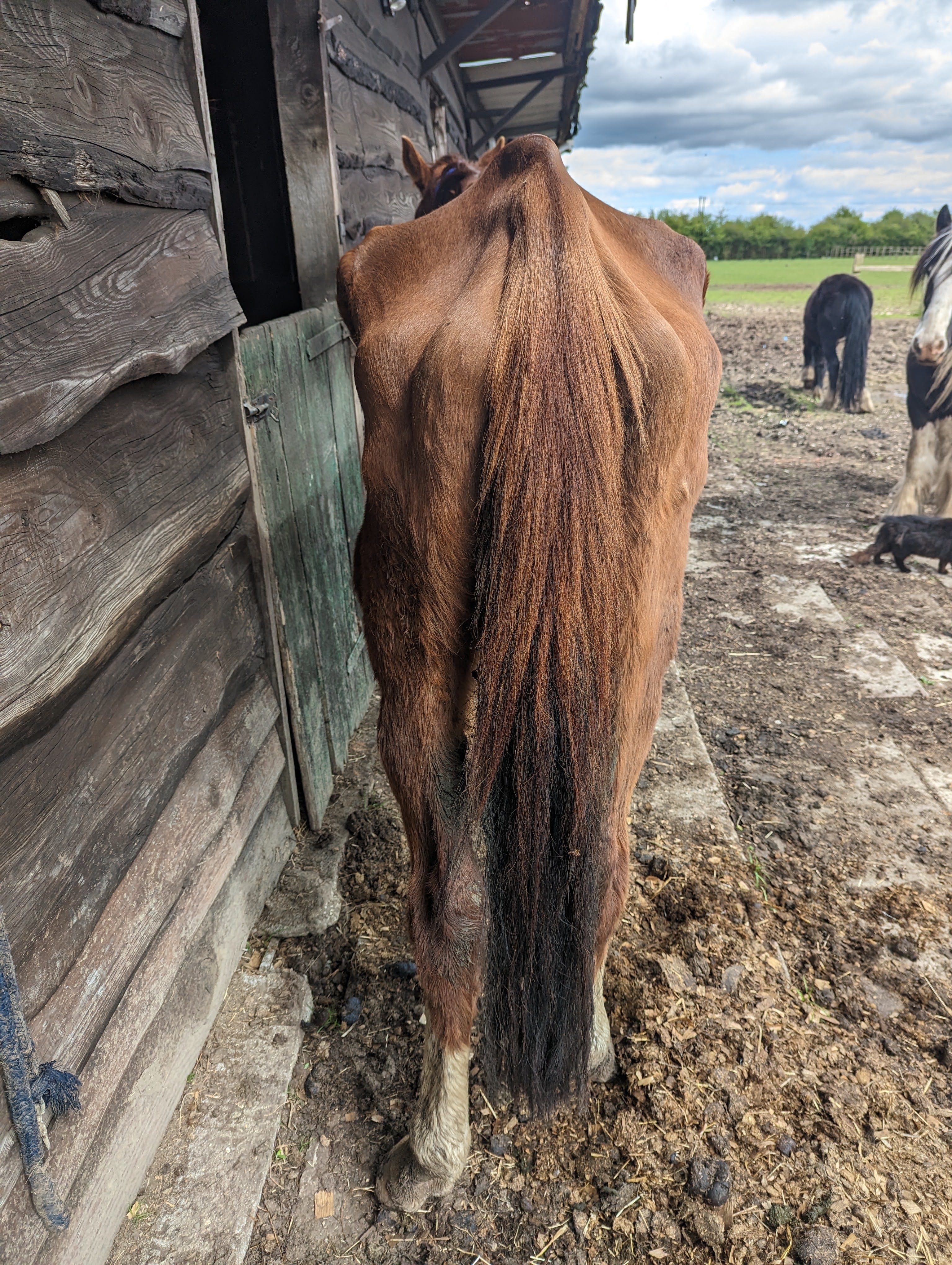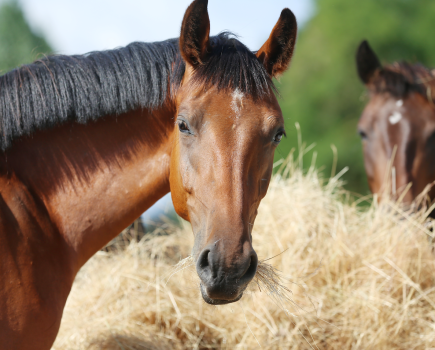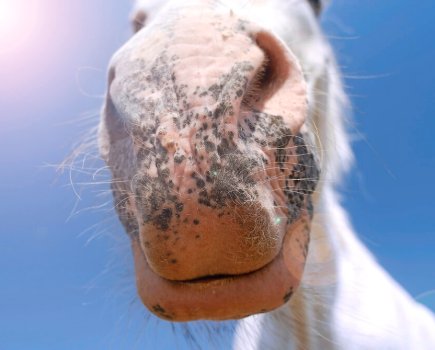The owner of a horse who was found emaciated in a rubbish-strewn field in East Yorkshire has been banned from keeping equines for 10 years following a prosecution by the RSPCA. Amy Tichias, 20, of Hull Road in Cottingham, was handed the disqualification order after admitting causing unnecessary suffering to Chilli, a chestnut thoroughbred gelding, by failing to address the cause of his poor body condition.
At a sentencing hearing at Hull Magistrates Court on 12 December, Tichias was told her actions towards the horse had been “despicable,” and only her guilty plea and lack of previous convictions had prevented her from being sent to prison. A vet said Chilli, who was between seven and eight years old, could potentially have been suffering for months because of his emaciated condition.
The court was told that RSPCA officers Dan Richardson and Claire Mitchell had attended a field at Oaksley Carr in Woodmansey on 1 May this year following concerns the charity had received about a horse at the location.
“The ground by the stables and the smaller field were thick with mud and waterlogged,” said animal rescue officer Dan in written evidence to the court. “There was grass in the field but it was thin and very short. There was a lot of rubbish and various other hazards on the site.
“I could tell Chilli was thin as I could clearly see his hip bones protruding from under his rug. I put a head collar on him and tied him up near the stable and removed its rug. He was extremely thin. I estimated a body condition score of one. I also noted a sore and bare patch of skin on the front right pastern.”

A specialist large animal vet came out and assess Chilli. The vet signed a veterinary certificate to say he was suffering and needed to be removed from the premises. The police were contacted and took the horse into possession.
“Tichias identified the horse as hers,” said inspector Claire Mitchell, who also attended the location, in her evidence. “I told her he had been seized by the police due to his poor condition and he would be removed. She said he was thin because he hadn’t overwintered very well and that he was being moved to another field.
“I told her that it was beyond a poor overwintering case. She also said that a vet had been at the field but she couldn’t say when or which vet.”
Chilli – who Tichias had owned for a year – was transported for urgent treatment. Despite three weeks of intensive treatment and care his condition did not improve and a vet said the kindest thing to do was to put him to sleep to prevent further suffering.

“Chilli had a body condition score of 0.5 out of 5,” said the vet who saw him in written evidence. “His skin and coat were in fair condition but he had mild dermatitis and scabs around the right fore palmar pastern and mild hair loss on the palmar/plantar pasterns on all four legs. His feet were overgrown on the forelimbs but in fair condition otherwise. He had mild dermatitis around the edges of his lips, especially the right hand side of his mouth. I also noted that there was limited grazing available and no supplementary food seen anywhere in the paddock.
“In my opinion he had been caused suffering for a minimum of four weeks, potentially it could have been months, due to his emaciated condition. A responsible owner should recognise when an animal is failing to thrive or losing weight and veterinary intervention should be sought to prevent suffering of that animal.”
In mitigation the court was told that Tichias was “devastated” by the impact of her actions on Chilli and was concerned her conviction would impact on her ability to work in the equine industry. She conceded that she had buried her head in the sand but it was not deliberate cruelty or wilful neglect.
A 24-month community order with a requirement to carry out 300 hours unpaid work was also imposed. Tichias was also ordered to pay £400 in costs and a victim surcharge of £114.

“This was an extremely sad case to investigate involving a relatively young horse who had suffered severe neglect and did not get to live the life he deserved despite the efforts of everyone who tried to save him,” said case inspector Mitchell after the conclusion.
“I would urge all equine owners to be vigilant and check their animals regularly. Any animal that drops weight and keeps dropping weight should be a concern and early intervention from a vet is crucial.”







